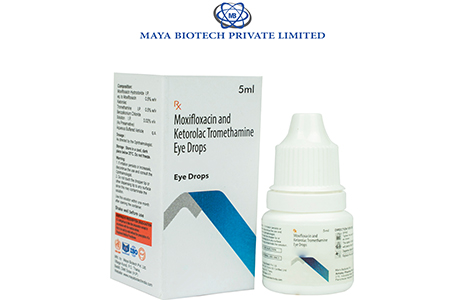Maya Biotech Private Limited -A Third Party Pharmaceutical Manufacturing in Predictive Analysis

Maya Biotech Private Limited – A Third-Party Pharmaceutical Manufacturing in Predictive AnaIgsis is a tricky business -it’s difficult to find experts who can not only thoroughly document trends of the past year but also understand the underlying
market forces at work that are causing them. Findings from the CPHI Market report highlighted how there’s a common perception that we’ve hit a ‘bottom’ in terms of value in the biotech market.
CPHI reports and experts both indicated that the lack of healthcare coverage for the accompanying proper guidance is perhaps the biggest challenge to wider adoption post-approval. One of the key findings closely used in the CPHI report was the growth of India in key metrics such as competitiveness and finished product manufacturing quality. Over the last two years, there has been a significant thrust on finished manufacturing in India, and this is likely to continue. The trend includes Indian companies securing their value chain by localizing API production as well as private equity funds and strategic investors prioritizing investments in R&D manufacturing in India. Several Indian companies have strengthened their overall competitiveness in R&D bg enhancing the level of backward integration. Global diversity is now a must-have for any robust supply chain initiative. Hence, there is interest in both India and the West to ensure that clinical trials and the commercial supply of medicines remain unaffected by any issues in China.
metered dose inhaler manufacturers in India
India is known globally for its process research and development capabilities and its leadership in the generic supply chain. The same skills translate well to supplying pharmaceuticals and/or intermediates for innovative therapies. Another area we would point to, highlighted in our Future of Outsourcing—Strategies for Partner Selection report from earlier this year is the shift away from phase-appropriate development. Manufacturing is an important part of any organization’s activity. The manufacturing facilities incorporate the latest technology and sophisticated equipment to ensure a high level of productivity and consistent quality of products. The company’s Good Manufacturing Practices (GMP) documentation and validation protocols have met approval from the World Health Organization (WHO). The number of purely Indian pharma companies is fairly smaller. The Indian pharma industry is mainly operated as well as controlled by dominant foreign companies having subsidiaries in India due to the availability of cheap labour at the lowest cost. Most of the pharmaceutical companies operating in India, including multinationals, employ Indians almost exclusively from the lowest ranks to high-level management Homegrown pharmaceuticals like many other businesses in India, are often a mix of public and private enterprises.
As promising as the future is as a whole, the outlook for small and medium enterprises is not as bright. The excise structure changed so that companies now have to pay a 16% tax on the maximum retail price (MRP) of their products, as opposed to on the ex-factory price. Consequently, larger companies are cutting back on outsourcing and what business is left is shifting to companies with facilities in the four tax-free states – Himachal Pradesh, Jammu & Kashmir, Uttaranchal and Jharkhand. Consequently, a large number of pharmaceutical manufacturers shifted their plants to these states, as it became almost impossible to continue operating in non-tax-free zones. But in a matter of a couple of years, the excise duty was revised on two occasions. First, it was reduced to 8% and then to 4%. As a result, the benefits of shifting to a tax-free zone were negated. This resulted in factories in the tax-free zones starting up third-party manufacturing. Under this, these factories produce goods under the brand names of other parties on a job-work basis. As SMEs wrestled with the tax structure, they were also scrambling to meet the deadline for compliance with the revised Schedule M intended for Good Manufacturing Practices(GMP). While this should be beneficial to consumers and the industry at large, SMEs have been finding it difficult to find the funds to upgrade their manufacturing plants, resulting in the closure of many facilities. Others invested the money to bring their facilities to compliance, but these operations were located in non-tax-free states, making it difficult to compete in the wake of the new excise tax. Maya Biotech Private Limited’s predictive analysis tends to keep the company in focus on future goals.
metered dose inhaler manufacturers in india